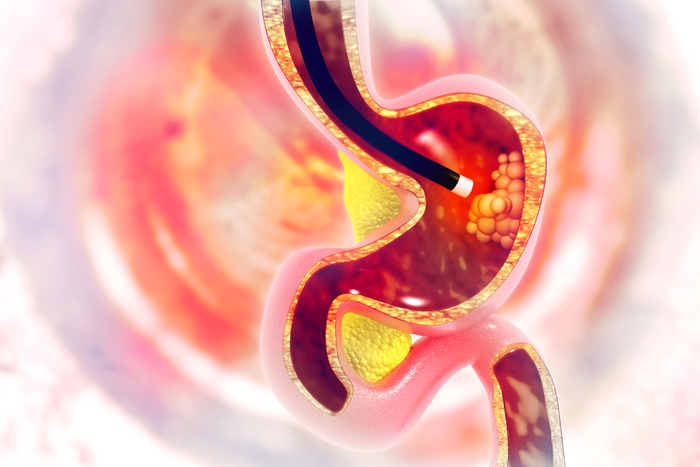Endoscopy Services Treatment & Diagnostics in Chunni Ganj, Kanpur
Endoscopy Services
Endoscopy is a non-surgical procedure that is used to examine the digestive tracts in people. This is done by inserting an instrument with a flexible tube attached to a camera called an endoscope. The camera gives the advantage of viewing the insides of the tube more clearly on the TV Monitor. Doctors can either use it through the openings of the body or by using an incision method depending on the cause. Modern endoscopy has relatively fewer risks than the traditional ways.

Who needs Endoscopic Services?
Endoscopy can be used to investigate and confirm various diseases or damages on the body. Doctors often recommend endoscopy to determine problems in the following areas:
- Stomach pain
- Problem in ears
- Female reproductive system
- Ulcers, gastritis, or difficulty swallowing
- Digestive tract bleeding
- Changes in bowel habits
- Polyps or growths in the large intestine
What are the types of Endoscopic Procedures?
Percutaneous Endoscopic Gastrostomy (PEG)
PEG is used for gastrostomy inserted through the abdominal wall. A way of feeding when people cannot eat their food from their mouth. This is usually when the patients are unconscious.
Endoscopic Retrograde Cholangiopancreatography (ERCP)
The ERCP evaluates the pancreatic, gallbladder, and biliary ducts. It can identify and remove stones or diagnose tumors in the ducts or identify a narrowing of the ducts.
Esophageal Gastro Duodenoscopy (EGD)
An EGD leads to a clearer image from the mouth to the small bowel. EGD is often performed on people who have difficulty in swallowing or suffering from upper gastrointestinal bleeding, abdominal pain, and ulcers.
Video Capsule Endoscopy
Video capsule is the type of endoscopy used to look at the small intestine. It can identify the causes of bleeding, inflammatory bowel diseases, polyps, ulcers, or cancerous cells in the small intestine. A minuscule camera, called PillCam, in the capsule is consumed that passes naturally.
With a capsule inside the stomach, a data recorder is worn by the patient for 8 hours and the pictures of the small bowel are recorded on the computer.
Small Bowel Enteroscopy
The surgeon can either use the oral or rectal opening to examine the entire small intestine. This process helps in the diagnosis of possible diseases. Patients are to refrain from eating or drinking anything twelve hours before the small bowel enteroscopy.
Anorectal Tests
Anorectal tests are performed in the rectum or anal canal. This test helps in determining the possible growth of polyps, malformations, or colon cancer. The surgeon inserts the small tube to determine the pressure in the muscles.
Bronchoscopy
This is a diagnosis that gives the view of bronchi or tracheobronchial tree procedure that provides a view of the tracheobronchial tree (bronchi) or large tube of the lungs. This method is used to examine the abnormal lung sections, chest, or chest biopsy to determine the possible respiratory diseases.
Colonoscopy
The process of examining the interior lining of the large intestine is called colonoscopy. This process aims to determine the swollen tissues, pre-cancerous tissues, or blood cells in the large intestine. It can also help in evaluating the possible diseases like polyps, rectal bleeding, hemorrhoids, and in determining the extent of inflammatory bowel disease.
Risks and side effects
Endoscopy is a safe process, but there are certain risks involved depending on the area that is being checked.
Risks of endoscopy may include:
- Over-sedation, although sedation is not always necessary
- Feeling full for a short time after the procedure
- Mild cramping
- A numb throat for a while due to the use of local anesthetic
- Infection of the area of investigation
- Persistent pain where endoscopy was performed
- Scar in the lining of the stomach or esophagus
- Internal bleeding due to endoscopic cauterization
- Complications related to preexisting conditions
Request an appointment at Apollo Spectra Hospitals, Kanpur
Call1860-500-2244 to book an appointment
Endoscopy can be used to remove tumors or polyps from the digestive tract. The primary reasons for undergoing endoscopy are investigation, confirmation, and treatment.
Capsule endoscopy is used to examine the small intestine with a wireless camera. It is very useful for viewing the small intestinal mucosa and diagnosing Crohn’s diseaseTrusted Source.
It usually takes 1 hour for the process of endoscopy. Patients are asked to fast for 12 hours before the endoscopy.
Our Top Specialities
NOTICE BOARD
CONTACT US
CONTACT US
 Book Appointment
Book Appointment


.svg)
.svg)
.svg)
.svg)








